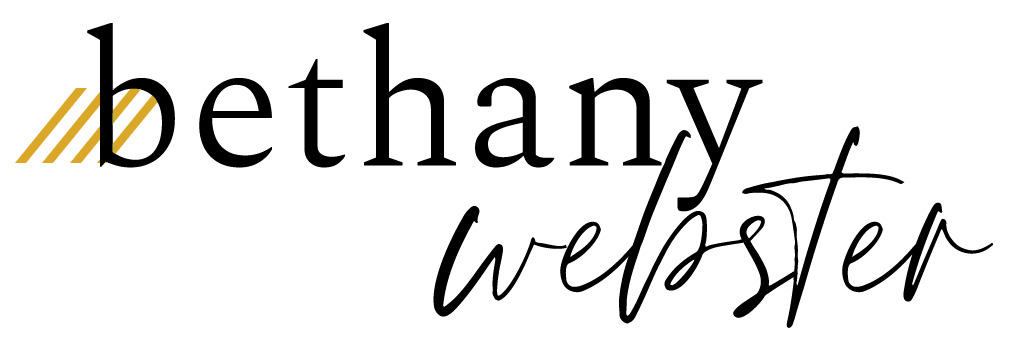When Mind is Mother: Healing from the Hypervigilance that comes with Emotional Neglect

When “Mind is Mother,” Healing from the Hypervigilance that comes with Emotional Neglect
- Do you ever struggle with exhaustion and overwhelm?
- Did you have to “grow up too fast” as a child?
- Are you someone who overthinks, over-plans, or stresses about the future?
- Have you had periods when life just feels like a heavy burden?
If so, you are not alone.
These are some symptoms that many women struggle with who meet the definition of having been “parentified” as children, meaning given adult roles and responsibilities too early in life. This often happens when there is emotional neglect, abuse, trauma or other challenges in the household as well, including things like financial struggles, domestic abuse or addictions. But not necessarily.
In this article I explore how we may develop hypervigilance or a reliance on over-thinking to cope with being under-mothered or emotionally neglected, a pattern I call “mind-as-mother.”
I’ll talk about how this pattern manifests both in childhood and adulthood, and how we can heal from this as adults, stepping into more inner peace, mental calm and a new default narrative that all is well, the experience that life is ultimately benevolent and an adult-self confidence that we can handle whatever the future brings.
We’re living in a time of great change and upheaval on a global scale, which can create fear about our future personally and collectively.
The problem is that fear is not very functional, in the sense that when we are in a state of fear it is harder to see possible solutions clearly and to make wise decisions to cope with whatever we are facing. Being calm and present is much more functional and effective state from which to face any problem, because with a calmer inner state, we can better perceive more of what is actually happening, what is possible and what choice is best in the moment.
I believe that this time in history offers us a powerful opportunity to examine our relationship with fear. I’m not talking about the kind of fear that helps you quickly step away from an oncoming car or run from a tiger. That is useful fear for the purpose of physical survival. What I’m talking about is psychological fear, a fear-based lens that originates from childhood neglect or trauma and stays with us until adulthood, distorting our perceptions of the present moment. This fear-based lens sees life as something to be feared, endured, overcome, with little room left for joy, pleasure or meaning.
For those of us who grew up in chaotic or neglectful households, fear may have developed into hypervigilance, which is basically having a chronic high-level of alertness and constant scanning for potential threats to your wellbeing.
As children, we may have conflated feeling hypervigilant with the ability to keep ourselves safe in the absence of a stable, calm, loving adult. This is how the mind can function as “Mother.”
The “mother gap” is the gap between what we needed from our mothers and what we actually received. That gap, the void of mothering (to whatever degree) is painful because there was not enough of a presence of a loving, stable, adult to help us process and resolve the emotional distress we went through as children.
With a consistent presence of a loving adult witness to help us process our emotional pain, emotions can run their course to completion in an atmosphere of benevolence and safety.
Ideally, this is how we learn as children, how not to fear emotions, but rather how to process them, through being gently guided to do so by a loving adult in a nonjudgmental space in which the feelings are acknowledged, felt and then disappear into completion. This allows us to feel a resolution of emotions and trust that we can handle them in the future.
Many of our mothers and fathers could barely process their own emotions and were not helpful models of how to feel emotionally safe in the world.
Without a sufficiently stable and loving adult witness, as kids many of us were left alone with our own pain and left to form incorrect conclusions about the pain we were going through and why. We may have also formed inaccurate beliefs about life in general, about ourselves, and what to expect in the future. These faulty perceptions or conclusions we came to as neglected children may have kept us safe in the sense that they helped us cope with the emotional pain or chaos of our childhoods, but as adults, these false conclusions form barriers to our fulfillment and happiness.
Unconscious conclusions a child may come to in the face of pain without enough adult support may include things like:
- “There’s something wrong with me.” (How could the person that’s supposed to love me the most be so cruel or cold to me?)
- “Everything is always my fault.” (if or when a parent chronically lashes out)
- “I must be bad.” (if mother sees child as a burden due to her own exhaustion or mental health struggles)
- “If I was actually good, then my mother would love me.” (A child can’t understand yet that both can be true, you are inherently good AND your mother can’t be what you need due to her own issues.)
- “If I just become exactly what my mother wants then she will love me!”
- “I have to be perfect then she will have no choice but to see me and love me.”
- “I’m trapped, I’m all alone, nobody loves me. I need to be useful to be valued.”
A child blames herself as an unconscious strategy to cope with an abusive or neglectful childhood.
A child’s limited cognitive development causes her to see herself as the cause of her own pain. This gives her a sense of control over the situation (by hoping to change her own behavior to better elicit the mother’s approval) and gives her a benevolent view of the mother whom she needs to trust in order to survive. If she saw how unsafe her mother was, she may not survive that devastating reality.
Symptoms of parentification and hypervigilance in children may include:
- Having adult roles or responsibilities that may include a range of things including caring for or having to protect younger siblings, being an emotional confidant to a parent, cleaning up messes of a parent, having to keep secrets or serve as mediator, or family advocate from a young age.
- Constantly feeling “on edge” and on the lookout for possible threats which may include hyper-arousal of the nervous system, scanning faces of parents for changes in mood in order to be ready for any potential outbursts of emotion or violence.
- Trying to prevent conflicts or outbursts of adults by people-pleasing, being invisible, having no needs, playing “good girl” role, etc.
- Feeling “not real,” like a ghost, a zombie or a doll (due to being treated more like a function than a person, dehumanization, expected to not be a child, more like a little adult, child’s feelings are ignored, invisible to parents or seen as a nuisance or causes parent to rage or withdraw.)
- Feeling pressure to perform “okayness” to prevent upset in the parent.
- Feeling like an adult, doesn’t identify as a child inside. (might not see this until later in life.)
- Dissociation, melancholy, flatness, depression but feels concurrent pressure to perform cheerfulness.
- Being told they are “mature for their age.”
- Keeping extensive mental lists “Don’t do (a litany of things that could cause rejection).”
- Fear of a “hammer” coming down if they are too relaxed. Mother may punish spontaneous acts of joy or play in the parentified daughter.
- Mother reinforces and praises adult-like behavior in the child. (“Where would I be without my good girl?, my good helper?”)
- Being shamed or punished for normal childhood behaviors like making a mess, making a mistake, being emotionally distressed, not knowing something, etc.
- Having to project benevolence onto disturbing or abusive behaviors from adults.
- Child’s emotions or needs have been dismissed or punished enough that it feels best to suppress them or even punish herself for having them.
- Feels terror or menace while around adults that should be keeping her safe. Unconsciously realizes she is the only self-aware person in the room even as a child. Could be excessive alcohol or drug use in the house.
- The mother can vacillate between being helpless and needy one moment and then be cruel and punishing in the next. Could be mental illness in the mother.
If we had to cope with any of the above as children, that chronic sense of fear we felt as children can continue into our teen years and adult years. Only now there may be an additional defensive veneer of adult competence or over-achieving persona on top of that childhood pain.
For some parentified daughters (not all), that “little adult”, frantic, fear-based, “tired child” inside is now located inside the identity of an adult who may have taken those coping mechanisms into culturally-approved adult roles such as:
- Impeccable planner and project manager at work
- Working mom barely holding it together on her own
- Over-achieving graduate student with low self-esteem
- Workaholic entrepreneur
- Functioning alcoholic Artist or Musician
- Fastidious Supermom with a huge following on Instagram
- Family planner and “Queen Bee” presiding over the family
- Lawyer or Doctor in a loveless marriage or chronic cheater spouse
- Recluse or hermit who lives in her head and has very low expectations of others
- Many more manifestations, these are just a few
You may also have a nasty inner critic who tears you down. This may actually be what is called an introject, or an internalized, negative voice of your mother:
- “You don’t know what you’re doing. You’re such a mess!”
- “Nobody will love you if you keep doing that.”
- “You should know better. You should be able to control that.”
- “Look at you! You’re an embarrassment! You’ll never get ahead.”
- “You should be ashamed of yourself.”
- “You better get this right or you’re nothing!”
Some ways that “Mind as Mother” may show up in us as adult women:
- Always feeling behind (as a child you were given too much too soon).
- Putting unrealistic/ superhuman standards on yourself that are impossible to meet.
- Habit of putting too much on your own plate (unclear sense of what is too much for you).
- Everything feels too much (an assumption that tasks are inherently burdensome).
- Default pattern of forcing and pushing yourself to do things you don’t want to do.
- Self-talk that is heavily colored by self-recrimination and self-judgment.
- “Lurching” forward during sleep in a panic, feeling like you forgot something or missed something important but not clear what.
- Fear as main motivator for action: “If I don’t do X, then (bad things) will happen.”
- A feeling like “It’s all on me” for things to work or not work.
- Attracting under-functioning partners or friends who you over-function for.
- Vacillation between over-working and then collapse in exhaustion. Not much middle ground or gray area.
- Starts to feel guilty when resting and relaxing, a nagging sense of dread the longer you rest.
- Feeling unseen, unloved, unvalued or used in relationships and friendships.
- Feeling suspicious of your own needs, like you want too much or are “too much.”
- Seeing attenuating yourself as somehow virtuous or desirable.
- Feels awkward or disingenuous to accept compliments from other people.
- Finding yourself putting on a happy face when you feel miserable. Trying not to do that.
- Guilt if you honestly acknowledge how you actually feel about something. Assuming your true feelings would “hurt” other people. Seeing others as children who need coddling or pacifying. Feeling like the only adult in the room and making that assumption.
- Too high a tolerance for people treating you poorly. Giving too much benefit of the doubt.
- Feeling resentful of others’ demands but don’t feel strong enough to use your voice to set consistent boundaries. Spiral of negative self-talk.
- Criticizing yourself constantly, never feeling good enough, feeling unworthy
- “Power-under” automatically assuming that other people are “more _(better)__” than you even if you exceed them on many things. May or may not seek to over-compensate for that with power dynamics.
- Escaping into mental fantasies of the future that is idealized or feels unreachable.
- Soothing yourself with things like food, shopping, hobbies, status, wealth, achievements, etc. but nothing quite satisfies.
- Distracting yourself as a way to avoid feeling intense emotions.
- A very quick strategic mind. You are an amazing problem solver and can see many steps ahead and plan accordingly. This gives you a sense of control and power and makes you stand out, drawing praise from others.
- Image and impression management is very important. Controlling one’s image gives a sense of security and keeps painful feelings at bay.
- Uncomfortable or agitated during happy times, unable to fully relax.
- A deep assumption that you should be able to control things that you actually cannot.
Underneath a “can-do” powerhouse attitude or “can’t be bothered” exterior is the pain and fatigue of a “tired child” who is still relying on fear to feel safe, believing that it is not safe enough to ever purely rest, having to keep pushing herself until exhaustion. You may receive approval and adulation for some of these qualities that so benefit others, but at a certain point the exhaustion may become unrelenting and the suffering may be intense enough for you to feel the need to do things differently.
If you’re lucky, these identities eventually start to break down and show you the pain underneath. This is a good thing!
At a certain point, those coping mechanisms based on hypervigilance and parentification stop working. You start to see that pattern of “mind as mother” cannot actually keep you safe and never did. The mind, the reliance on thoughts, rumination, compulsive thinking, strategizing, future projections, do NOT actually keep you safe and never have. The mind is actually like a computer, it pops out thoughts that have worked in the past, trying to keep you safe in similar ways that worked in childhood. It doesn’t have the answers or original solutions for the present moment in your adult life. It’s working from old outdated programming from childhood when your nervous system and brain were still developing. Fear-based thoughts are not your friend. We must come to see this clearly and it usually happens through intense suffering or exhaustion.
Let exhaustion be your guide.
Exhaustion opens the way to grieving and grieving leads to healing.
At a certain point, your body may revolt, become ill with minor or major illnesses as a way to try to prevent you from continuing this pattern. Exhaustion is helpful in this way; it’s showing you it doesn’t work to continue living through your mind. The suffering is trying point you to the original exhaustion, which was the exhaustion of being a parentified child in the past so that you can fully grieve the pain of the past, heal and start to live in a new way. It’s not necessarily showing you anything about your current life, but the deeper pain you went through as a child. Welcome the exhaustion as it is leading you to important truths about your trauma that once uncovered, can help you change your life as an adult.
As children, when the household atmosphere is dominated by fear more than love, flight into the mind feels much safer than being fully present in the now.
Years ago, I went through a period like this myself in which it was difficult to move physically, I was exhausted a lot of the time, and I realized that my inner child was trying to show me what a heavy burden it was simply to exist in my childhood home, where fear was more real and dominant than love.
During this period in my childhood, I was between 5 and 9 years old. I felt there was no relief from the constant stress and misery of my parents’ conflicts and my mother’s emotional neediness. I seemed to absorb their stress. Existence felt dark, I felt like a soldier scanning for threats as I sensed that I was deeply alone on an emotional level. When I had needed help, even a small sign of my distress seemed to overwhelm my mother causing her to become angry and further dysregulated. I learned to share as little as possible with her. I felt slightly out of my body every day but had a constant demeanor of cheerfulness to the outside world. The contrast between my inner life and my external mask was excruciating. I felt disembodied, trudging through life, like walking through mud. There wasn’t a safe place to rest.
What kinds of childhood experiences foster a reliance on hypervigilance?
One night during this period, my mother and brother and I were playing on the kitchen floor at night, I remember that the lights were off, but we were laughing and being silly. It was a rare moment of pure joy. However, that took a strange turn when all of a sudden my mother stopped moving and lay dead-weight on the kitchen floor in her nightgown. I thought it was a joke and started poking her saying “Mommy, wake up!” but soon my laughter turned to terror as she was not responding. After some time, to the point I was in a panic and in tears, she did finally open her eyes and said she was just playing a joke as though nothing was wrong.
This experience seemed to solidify to me as a child that adults are not trustworthy and that I should never be too joyful or carefree because something horrific could happen to take it all away in a split second. I learned I was on my own. My bond with “Mind-as-mother” was further solidified by that moment. For many years I struggled with a deep sense of menace, dread and hypervigilance during happy situations, waiting for the invisible hammer to fall when I least expected it.
In hindsight, I think my mother was likely depressed and induced the terrified cries of her children in order to feel that she mattered to someone, which is so sad. During this period, she frequently threatened to run away from us and even threatened to commit suicide as well. Emotionally immature adults have often been traumatized themselves and have no idea or interest in understanding what childhood pain they are acting out and how they may be harming their own children as a result. To emotionally immature parents, the priority of HIDING the abuse is often more important to them than healing it.
All we can do is take some distance from them and get the support we need to heal ourselves, becoming the loving adult mother to the inner child that we needed back then.
We can’t save our mothers or anyone else in our family for that matter. We can only save ourselves.
I share this from own personal experience to give you an idea of what kinds of memories or experiences may have shaped how you needed to believe “Mind” was a safer mother than your own actual mother. And how these painful experiences of childhood emotional neglect need to be lovingly acknowledged, empathized with, grieved in order to be released. It’s important to spend time feeling empathy and compassion for the little girl you were who did her best to survive under incredible duress. And also to point out that that experience was a certain period in time and that time is long over now. The pain happened in the past, it was NOT your fault, it’s not happening now and we don’t need to be so afraid or hypervigilant anymore. Now she has you, adult self, who can soothe her fears and keep her safe. This is good news!
Separating out the pain of the past from the safety and empowerment of the present…
As little children we believed that being hypervigilant was protecting us from disasters, but actually it was just a helpful illusion to help us get through childhood into adulthood. The truth is that we did not have the power as children to prevent harm coming to us. That power was purely in the hands of the adults in the situation, our mother and father. As the adults, those were the only people who had the power to change things for the better. As children we were completely powerless, dependent on them and vulnerable to the consequences of their choices and decisions.
As adults, the need to compulsively plan, rely on fearful mental scenarios for motivation, to work compulsively or numb our emotions are all fallout from parentification and emotional neglect. That happened back then, and now we can heal from it. As adults, we don’t need those coping mechanisms anymore that rely on excessive thinking and fearful thoughts. We can open to new ways of being, new ways of seeing life that are more accurate and more empowering.
Stepping into new energy:
Differentiating from the “tired child” within
As we heal, we get to differentiate from the tired child within, who, when we blend our adult consciousness with her, causes us to feel heavy, fearful, powerless and scared inside. We can differentiate from her, reframe the past and begin to actively mother her in a new way to help her feel safe in the present moment, letting go of “burps” from the past that need to run their course in the healing process. You can be a loving, gentle, fun “inner mom” who is dedicated to helping her rest, relax, heal and play joyfully, while you, the Adult Self take care of the adult things. This differentiation inside gives you more energy, more vitality and a sense of confidence and sovereignty in your adult life.
As the loving Inner Mother/ Adult-Self here are some things you can tell the Tired-Child within:
- “You can rest inside me. I am your Adult self here to take care of you and nurture you.”
- “I love being an adult. I have all the support I need. I don’t need you to take care of me.”
- “I don’t need you to manage anything for me. You get to purely receive support now.”
- “I am here to take care of you and I love taking care of you as my inner child.”
- “You are not a burden to me. You are a joy and a delight in my life!”
- “You can stay “plopped” in my heart all day. You can rest as long as you want!”
- “You don’t have to work again, ever!!”
- “I’m the adult and I take care of the adult stuff. You get to play, learn, explore, rest!”
- “You are free to be you. I love you no matter what. There’s nothing you could do to make me not love you.”
- “Your needs are healthy and normal. I love meeting your needs.”
- “You relax while I take over the wheel of our self-system. I got this!”
- “I am with you every step of this day. You are never alone. I am here for you always.”
- “I will make mistakes sometimes as your Adult self/inner mother but that doesn’t mean I don’t love you, it just means I’m human. I am committed to learning from my mistakes.”
Grief is healing in motion. Grief is beautiful, mysterious and clears the way for the new. Welcome grief when it comes. It is key to healing from parentification and having a new trusting relationship with Life itself.
As a recovering parentified daughter who is healing from the hypervigilance that comes with emotional neglect, you may need to grieve many things including…
- How alone you really were back then. A little kid with no real emotional support.
- How self-absorbed or checked out our mothers/parents were when you needed them
- Healthy outrage on behalf of the little girl who believed she was bad and it was all her fault.
- Sadness at how dysfunctional the family was as a whole and how nobody got professional help.
- Grief that you were literally trapped with people who couldn’t properly care for you.
- Grief about how you exhausted yourself trying to “earn” rest when you deserved it all along.
- Grief about how truly scared you were and left without a caring adult
- Grief that your parents didn’t know any better and were ignorantly harming you.
- Grief that you may have to take distance from your parents now who remain in denial.
- Grief that you spent years feeling imprisoned by fear and paralyzed to speak back to it.
You may also feel some gratitude as well:
- Gratitude that you are seeing all this now and on a healing journey to freedom.
- Gratitude that you survived that despite the odds and how hypervigilance was helpful in that way, to get you here now to adulthood, where you are more at choice about how you want to live.
- Appreciation for the child you were, that you hung in there until adulthood when you could heal.
- Gratitude that you’re living in a time when the topic of childhood trauma is being studied, explored and more understood than times in the past.
Changing your relationship to Fear and making Joy the default instead
As recovering parentified daughters, we can change our relationship to fear and our relationship to our minds in general. The truth is that having a “right relationship” with life is accepting the fact that there is very little that we can control or know for sure in any given moment, beyond what is happening right now. With a loving relationship with yourself and inner child, life is no longer something to fear, but an adventure to be enjoyed. Freedom and inner peace can be found in not needing to know much at all, but through finding the peace that is available by being more fully present in the here and now, which is always safe, simple and real.
Your inability to control life or know the future is not a failure. You didn’t fail at anything.
Parentification grooms us to feel an inflation of power and control that we never actually had as children. You can put down that burden now. It was never a true obligation. You were just given a monumental task beyond what any human child could do. You get to rest now.
Another way of saying this is….
“Of COURSE you felt like a failure. You were given more than any child could ever be expected to handle! It’s not a mistake that you have been so exhausted, tired and stressed out for most of your life. You were burdened too early, with too much. None of this was your fault. You can put down that over-exertion, that over-extension of energy and just rest, just be, and allow. You are safe now. I’ve got you. I am your adult self now and I do the adult stuff. You can finally be a child within me and I will care for you.”
As you grieve over time and cultivate that loving bond with your inner child, a new level of freedom and inner peace becomes possible.
Adult Freedom (with inner child tucked safely within you) includes things like:
- Being at peace with not needing to know the future and what will happen.
- Not needing to listen to get lost in thoughts about stuff, such as speculating about past or future, ruminating about people’s opinions, how we appear to others, what will happen in various situations, etc. (These are seen to be distractions and not helpful)
- Not needing to push, force, strive towards a future thing or a future moment.
- Trusting that all is very well and a higher good is always at work.
- Not letting your mind bully you into stressful thoughts and feelings. Take your sovereignty back from an overactive mind. Notice thoughts but hold them lightly.
- Speak back to the introject (negative mother’s voice) that tries to bully you by firmly and fiercely saying something like: “I’m the Adult self and I’m in charge now. You have no power here anymore. I decide what thoughts I want to listen to and which I don’t. I’m the authority here. Not you. Be gone.”
- Feeling effective in what you do in the world without fearful attachment to outcomes.
- Trusting that you’ll have what it takes to face what needs to be faced when the time comes.
- Joy in the moment, gratitude for simply existing, a lighter attitude towards things, more humor and joy in general.
- You become more simple, needing less things to feel happy. Just being is cause for joy!
- You can bring joy, fun, and lightness to your inner child who may still see life through a dark lens of bleak survival. Invite joy to the simplest things like making a cup of tea to folding the laundry. You can dance through your day!
- You can choose joy. You don’t have to earn it. It’s there for the taking because you exist. You don’t need to meet a certain criteria or listen to your mind tell you a thousand reasons why you cannot be happy NOW. Disregard that voice. Defy it and choose to feel joy. This is powerfully healing to the inner child.
- A sense that life is truly benevolent and not something to be feared, endured or overcome. You realize that you can co-create with life. That life is bringing you lessons to help you evolve and it’s always working for your highest good.
Compassion becomes your superpower. As an adult, there’s no emotion or experience that can dominate you. Your love within yourself is wide enough to embrace and transform any passing feeling or experience.
As you heal there gradually becomes an integration between the Adult Self’s discernment, sovereignty and reliance on a higher power through intuition, insights, rational thought AND the inner child’s original innocence and joy becomes unleashed as she feels safer within you. It can be very healing to lean into the joy of not knowing and open to the magic and wonder of life. It’s like being reborn as an adult, your inner child gets to play and you get to relax into trusting this adventure called life. Getting professional support from a therapist or coach who has personally undergone this healing experience is important.
A simple practice to support the process of healing from Parentification and Hypervigilance:
I recommend doing this every morning for 10 days. It consists of writing two paragraphs that you say in sequence out loud each morning. Feel free to read my scripts below and use those, or edit them or make up your own.
The purpose of this practice is to help ground you in what is real and exercise new brain pathways to gradually create a new default mode of feeling more safe, relaxed and present in the moment. (This is to also exercise NOT going down the old pathway of feeling safe through hypervigilance and excessive thinking.)
1. Create a brief paragraph to say to your adult self to reinforce what is right and true now. It could be something like:
“I acknowledge that I am an empowered adult now. As an adult I always have options and different choices available to me in any given moment. I have faith that I can handle whatever comes, when it comes. I can rest purely in the here and now where life is simple, real and safe. The pain that I went through as a child is long over and I declare that I am now the sovereign authority of what is true, best and right for me from moment to moment. I feel gratitude for my life and for my healing journey. I acknowledge all the wisdom, strength and love that lives inside me and that I have what it takes to care for my inner child and face whatever the future holds, when it comes. I love myself and I trust life to bring me what I need when I need it. I believe in the goodness of life and the goodness within myself. I allow myself to receive from life and to relax and enjoy this one precious life that I am living, moment to moment, breath by breath. I open to receive all the bounty and joy that life has to offer.”
2. Create a brief paragraph to say to your inner child every morning, to read out loud, AFTER you read the above paragraph to your adult self first.
“Dear Inner Child, I am so sorry you suffered so much back in the past, when you had to rely on the mind and constant thinking and fearful thoughts to stay alert and safe. I acknowledge how hard and painful that was. I want you to know that those days are over forever now. I am now here as your adult self to love you, keep you safe and protect you. I am now with you every day, every moment, and you can call on me for support at anytime. You will never be alone or unsafe like that ever again. Let’s look around together and take some deep breaths. We are safe now! Life is good! There is no longer any threat to your safety. Those threats are long gone. Now we can start to enjoy life and have more fun! You can rest inside me as much as you need to. I’m here to take care of the adult stuff now. You can be a child now! You can learn, grow, explore, and play. You don’t have to be hypervigilant anymore. I am the adult and I manage our lives. You can now relax. Let’s take a deep breath together. This quiet, calm, and safety is what is real now. The past is gone forever. It’s safe to relax now and in every moment. You can rest in me every day. I love you exactly as you are and am with you always. ”
Here’s a really important point:
As you read both paragraphs in sequence out loud each morning make sure to really FEEL on a somatic the somatic level, the relaxation and the inner peace that comes with what you are saying. Feel your body relax and take in the safety of your surroundings and the truth that the past is truly long over and done with forever. This is forming new pathways in your brain, so don’t skip the somatic breathing and looking around your environment or out of the window to really absorb the physical truth of what you are saying.
I recommend doing this for 10 days and notice how you feel differently after that.




